CESA
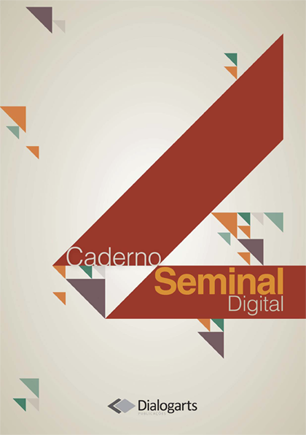
Modelos de Construção do Romance Africano em Nyembête ou As Cores da Lágrima
Abstract:
This study is based on Calane da Silva’s proposal, as an essayist, on the writing of the new African novel for the 21th century, which in my view still needs debate, but which can already be analyzed from the author’s own proposal, in his novel Nyembête ou as cores da lágrima. I demonstrate, with this research, the characteristics that allow us to accept the work as a formation novel, a designation that I borrow from Puga (2016). I argue that it is a narrative with neo-romantic elements, namely polyphony and death with the possibility of return, factually found in the Traditional Bantu Culture and in the Apostolic Catholic Tradition, and I also consider its perspective of a self-fictional novel (Faedrich, 2015), bearer of biographical marks of its author. In developing this research, I do so in the knowledge that it is a different conception of writing than what is usual to find in Calane da Silva – prose writer and short story writer (because he was also a poet). Added to this, in this article I observe that the author takes an approach to spirituality, centered on his studies on Spiritual Anthropology.
Quotation:
Laisse, S. J. (2023). “Modelos de Construção do Romance Africano em Nyembête ou as Cores da Lágrima”, In: A narrativa moçambicana no século XXI. Caderno Seminal Digital (n.º 45). Dialogarts. DOI http://dx.doi.org/10.12957/seminal.2023.79833

Subversão do Romance Policial e Questões de Memória em A Ilha dos Mulatos
Abstract:
This article presents a study about A Ilha dos Mulatos (2020), by Sérgio Raimundo, based on the structure of the detective novel, which is subverted and expanded to the level of narration, creating a game of masks in order to uncover the narrative voices. It deals with the theories of memory and the way memory is treated in the novel, unfolding in the notion of post-memory. Articulating memory as one of the necessary elements for the discovery of the guilty in the framework of the crime novel, we verify that it also turns out to be subverted in the writing of this novel.
Quotation:
Jeremias, R. & Leite, A. M. (2023). “Subversão do Romance Policial e Questões de Memória em A Ilha dos Mulatos”, In: A narrativa moçambicana no século XXI. Caderno Seminal Digital (n.º 45). Dialogarts. DOI http://dx.doi.org/10.12957/seminal.2023.79829
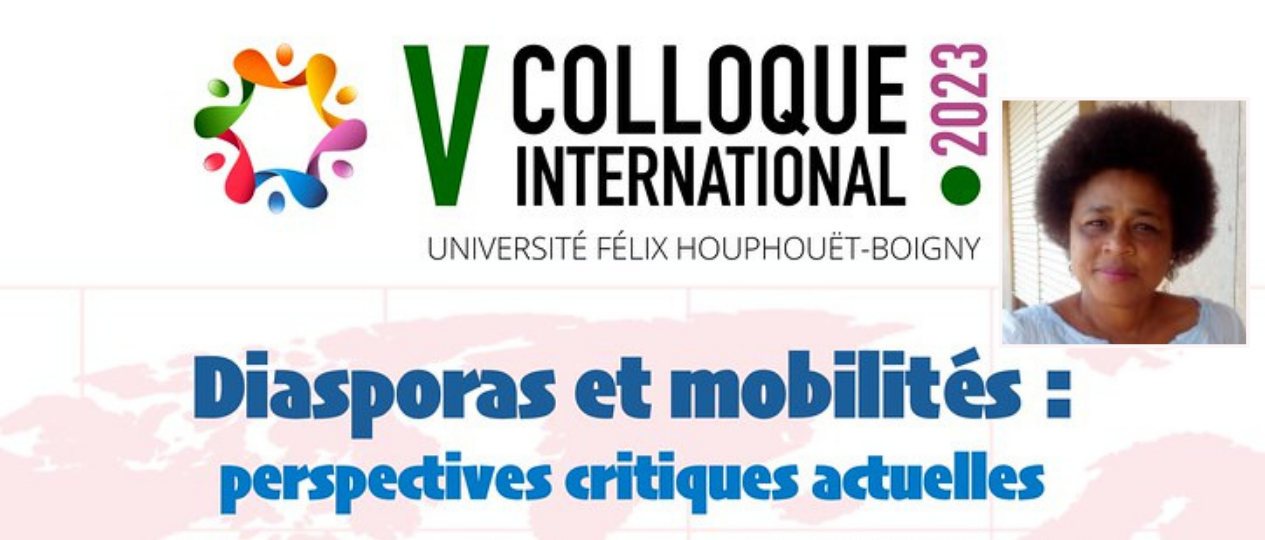
CEsA researcher Iolanda Évora is part of the Scientific Council of the 5th International Conference 2023 on diasporas and mobilities, taking place in Ivory Coast in November 2023
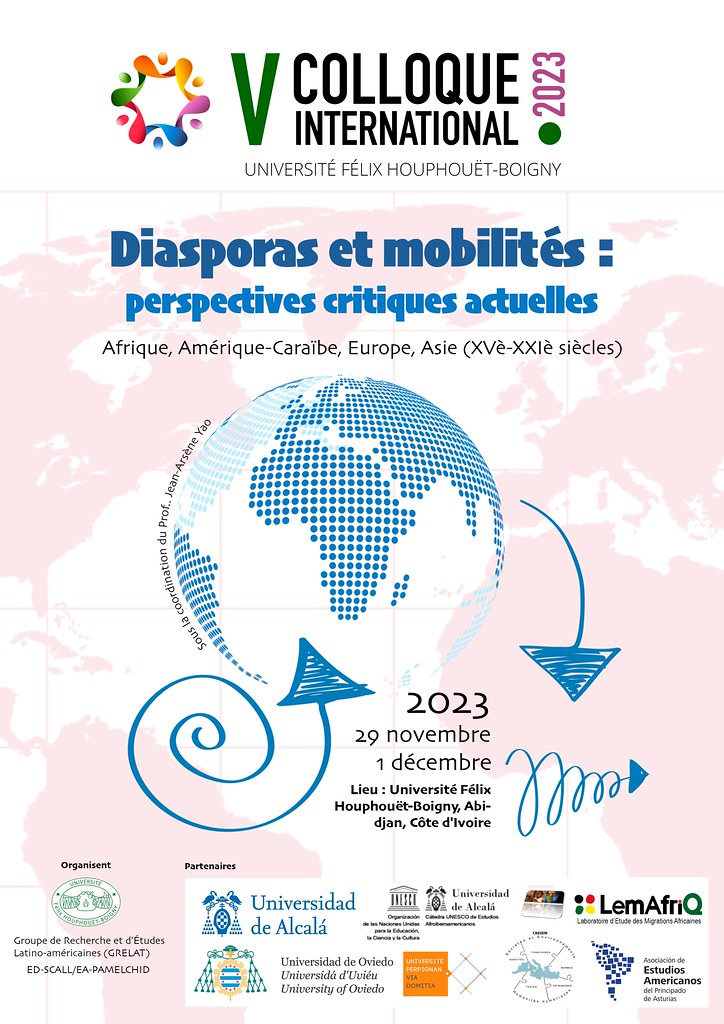
CEsA researcher and Professor at ISEG – Lisbon School of Economics and Management Iolanda Évora (CEsA/CSG/ISEG/ULisboa) participates as a member of the Scientific Council of the V Colloque International 2023 – Diasporas et Mobilités: Perspectives critiques actuelles. Afrique, Amérique-Caraïbe, Europe, Asia (XVè-XXIè siècles). The international conference will take place between November 29th and December 1st, 2023 at the Université Félix Houphouët-Boigny, in Abidjan, Ivory Coast. The event aims to explore the dynamics of human mobility on the one hand through the experience of Africans and people of African descent and, on the other hand, it aims to cross the themes of borders, circulations, human-environment interactions, memories, competence to act and interculturalities or creolizations not only on the African continent but also more widely in the Americas-Caribbean, without excluding Europe and Asia.
The event is organized by the Research and Latin American Studies Group (ED-SCALL/EA-PAMELCHID) at the Félix Houphouët-Boigny University (Ivory Coast), in collaboration with the Unesco Chair of Afro-Iberoamerican Studies at the University of Alcalá (Spain), the Research and Studies Group on Black People in Latin America (GRENAL-Eixo Línguas e Identidades/CRESEM) of the University of Perpignan (France), the Asociación de Estudios Americanos del Principado de Asturias, the University of Oviedo (Spain) and the Laboratory for the Study of African Migrations (LemAfriQ) based in Madrid (Spain).
More information on the Conference website: https://grelat-ufhb.org/v-colloque-international-2023/
Get to know our researcher:
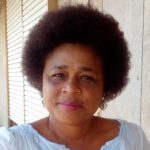 Iolanda Évora holds a PhD in Social Psychology from the University of São Paulo (USP), researcher at CEsA/CSG/ISEG/ULisboa and Professor of the Master in International Development and Cooperation (DCI) at ISEG/ULisboa. She is coordinator of the AFRO-PORT Project, Afrodescendência em Portugal: sociabilidades, representações e dinâmicas sociopolíticas e culturais. Um estudo na Área Metropolitana de Lisboa (FCT). Editor of the “Diáspora cabo-verdiana. Temas em debate” (e-book) and co-editor of the “As Ciências Sociais em Cabo Verde. Temáticas, abordagens e perspectivas teóricas” (Praia, UNI-CV, Cabo Verde), “Trabalho, sociabilidade e geração de rendimento no espaço lusófono” (Lisboa, CEsA/CSG/ISEG/ULisboa), “In Progress, Ciências Sociais e Desenvolvimento em África” (Lisboa, CEsA) e “Gênero e Migrações Cabo-Verdianas” (Lisboa, ICS). She collaborates with the Graduate Program in Social Sciences and the Research Laboratory in Political and Social Sciences of UNICV in Cabo Verde.
Iolanda Évora holds a PhD in Social Psychology from the University of São Paulo (USP), researcher at CEsA/CSG/ISEG/ULisboa and Professor of the Master in International Development and Cooperation (DCI) at ISEG/ULisboa. She is coordinator of the AFRO-PORT Project, Afrodescendência em Portugal: sociabilidades, representações e dinâmicas sociopolíticas e culturais. Um estudo na Área Metropolitana de Lisboa (FCT). Editor of the “Diáspora cabo-verdiana. Temas em debate” (e-book) and co-editor of the “As Ciências Sociais em Cabo Verde. Temáticas, abordagens e perspectivas teóricas” (Praia, UNI-CV, Cabo Verde), “Trabalho, sociabilidade e geração de rendimento no espaço lusófono” (Lisboa, CEsA/CSG/ISEG/ULisboa), “In Progress, Ciências Sociais e Desenvolvimento em África” (Lisboa, CEsA) e “Gênero e Migrações Cabo-Verdianas” (Lisboa, ICS). She collaborates with the Graduate Program in Social Sciences and the Research Laboratory in Political and Social Sciences of UNICV in Cabo Verde.
More information on Iolanda Évora research profile: https://cesa.rc.iseg.ulisboa.pt/investigacao/investigadores/ievora/
Get to know more about Iolanda Évora scientific production: https://www.repository.utl.pt/browse?type=author&value=%C3%89vora%2C+Iolanda
Read more:
Author: CEsA Communication (comunicacao@cesa.iseg.ulisboa.pt)
Images: Reproduction
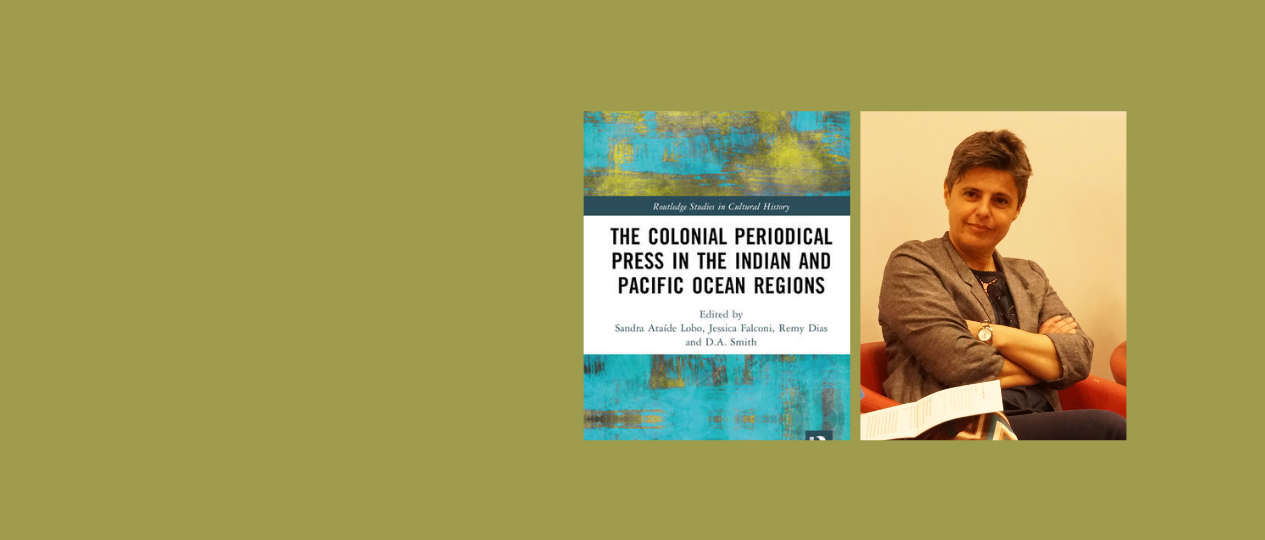
Jessica Falconi is a panelist in a webinar on the book The Colonial Periodical Press in the Indian and Pacific Ocean Regions
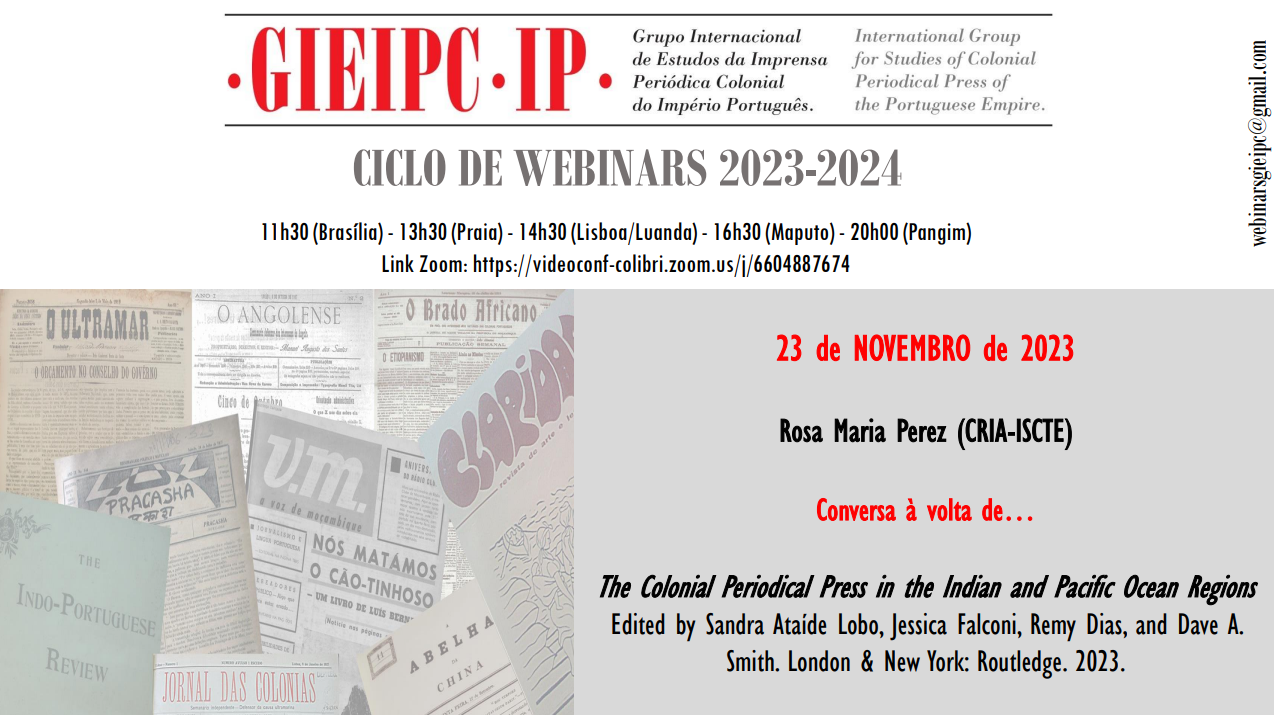
The researcher and Sub-Director of CEsA, Professor Jessica Falconi, will participate as a panelist in the 2023-2024 Webinar Cycle, on November 23rd, at 2.30 pm (UTC+0) (Zoom link: https://videoconf-colibri.zoom.us/j/6604887674#success), to talk about the book The Colonial Periodical Press in the Indian and Pacific Ocean Regions, from the Routledge Studies in Cultural History series. The book was co-edited by Jessica Falconi, Sandra Ataíde Lobo, Remy Dias, and Dave A. Smith, and published in 2023 (available here). The issue is dedicated to clarifying the crucial role of the periodical press in the advance of colonial print cultures and public debates in the Indian and Pacific Oceans.
The Webinar Cycle is held by GIEIPC-IP – International Group for Studies of Colonial Periodical Press of the Portuguese Empire.
Abstract – The Colonial Periodical Press in the Indian and Pacific Ocean Regions
The Colonial Periodical Press in the Indian and Pacific Ocean Regions is a venture of the International Group for Studies of Colonial Periodical Press of the Portuguese Empire (IGSCP-PE), which also invests in comparative studies and conceptual discussions. Moving around urban shores of the Indian and Pacific Oceans, it approaches the crucial role of periodical press in the development of colonial print cultures and public debates in these regions. By being mostly focused on press from spaces and peoples under the domain of the Portuguese Empire, it addresses a bibliographical gap in international discussions moved by the field. The outcome reflects an investment in offering decentred and de-nationalized approaches to the colonial print cultures and press histories under study, working as a platform for regional dialogues and comparative perspectives. The studies presented allow a better understanding of transits and connections of both an imperial and a trans-imperial nature, contributing to the consolidation of comparative approaches in the studies of European empires and colonialisms.
Get to know our researcher
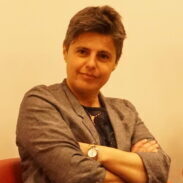 Jessica Falconi is Sub-Director of CEsA (2023-2025 Term). PhD in Iberian Studies at University of Naples “L’Orientale”. Her dissertation was about representation of national identity in mozambican poetry and was published in Italy in 2008. Between 2007 and 2013 she was lecturer at the same university in Portuguese and Brazilian Literature, and Portuguese Language and Translation. In 2017 she concluded her post-doctoral fellowship funded by FCT at the Center for African, Asian and Latin American Studies (CEsA/CSG/ISEG/ULisboa). She is Visiting Professor at Universitat Autónoma de Barcelona and coordinator of the Portuguese Language Center/IP Camões. She has published various articles in international journals and was co-editor of a book of interviews with Angolan and Mozambican writers. She is member of the team of the NILUS Project (CESA/FCT), Narratives of the Indian Ocean in the Lusophone Space.
Jessica Falconi is Sub-Director of CEsA (2023-2025 Term). PhD in Iberian Studies at University of Naples “L’Orientale”. Her dissertation was about representation of national identity in mozambican poetry and was published in Italy in 2008. Between 2007 and 2013 she was lecturer at the same university in Portuguese and Brazilian Literature, and Portuguese Language and Translation. In 2017 she concluded her post-doctoral fellowship funded by FCT at the Center for African, Asian and Latin American Studies (CEsA/CSG/ISEG/ULisboa). She is Visiting Professor at Universitat Autónoma de Barcelona and coordinator of the Portuguese Language Center/IP Camões. She has published various articles in international journals and was co-editor of a book of interviews with Angolan and Mozambican writers. She is member of the team of the NILUS Project (CESA/FCT), Narratives of the Indian Ocean in the Lusophone Space.
Read more:
Jessica Falconi is a guest editor of the “Routledge Studies in Cultural History” Series
Author: CEsA Communication (comunicacao@cesa.iseg.ulisboa.pt)
Images: Reproduction
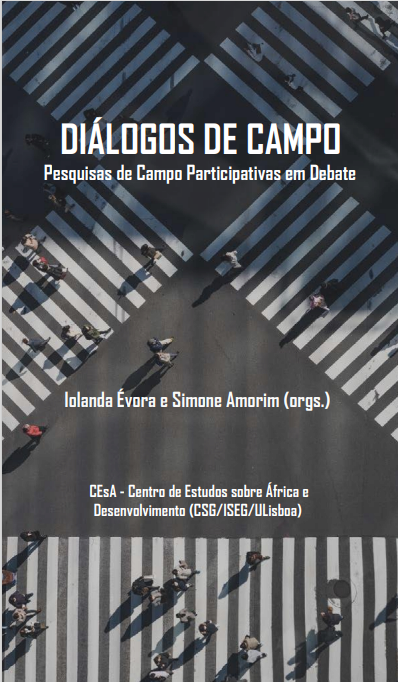
Diálogos de Campo – Pesquisas de Campo Participativas em Debate
Abstract:
This volume brings together concerns that serve as the basis for a continued debate on the mutual implications of research in the field of Social Sciences. The texts start from the common observation about the weakening of demands about “how we do it” in social research and deal with aspects related to fieldwork that are increasingly losing space in academia, essentially focused on producing results. From the fields of Social Sciences, Cinema, Literature, and Psychology, among others, the themes move between the dimensions of power hierarchies in research and the contexts that exponentiate them; the position and positionality of the researcher, and where we are placed by our interlocutors or people in the situations addressed. Specifically, they reflect on participatory methodologies and changes in knowledge production; ethnography and epistemic decolonization when the researcher does research in their life context; the interferences and determinations dictated by the field, during research; collaborative or participatory research, whether with refugee associations, in the field of artistic training or action research on bicycles and the city. Furthermore, the researcher’s subjectivity and writing regarding anti-racist cinema are addressed; as the implications of the researchers themselves in researching topics such as the impact of the pandemic on women, cultural heritage, or an object present, simultaneously, on different continents. The classic questions of the debate on methodology are present, which are, in fact, the foundations of current affairs, bringing different nuances of the contemporary debate, in social research, at a time when easier access to information reduces the distance and access of society (and the subjects of social research) to the knowledge about themselves produced in academia. This book was designed within the scope of the methodology workshops of the Afro-Port project (FCT/CEsA) and coincides with the project’s objective of contributing to a program in horizontal methodology and grounded methodology that is original, innovative and transdisciplinary, sustained by the interest in dialogue between academic and non-academic/scientific and non-scientific discourse.
Quotation:
Évora, I. e Amorim, S. (2023). “Diálogos de Campo – Pesquisas de Campo Participativas em Debate”. Lisboa, CEsA/CSG. ISBN 978-989-54687-4-4
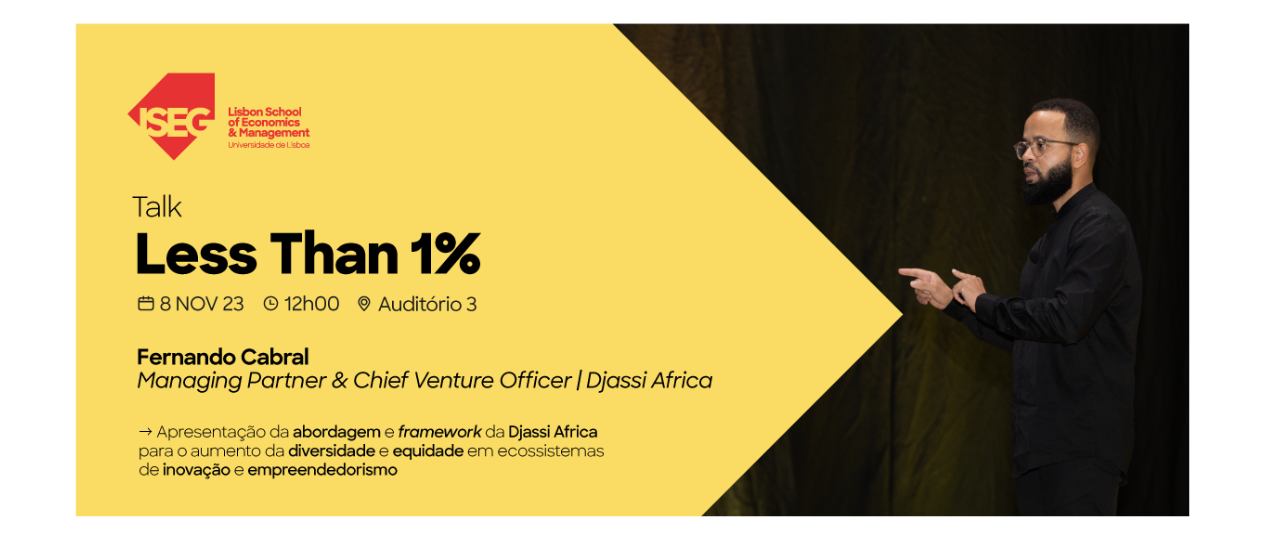
Talk | Less Than 1%
On the 8th November, with the support of CEsA – Centre for African and Development Studies, a talk , ISEG will host a talk on “Less Than 1%”, an initiative which is an integral part of the Entrepreneurship course unit.
The keynote speaker, Fernando Cabral, Managing Partner & Chief Venture Officer from Djassi Africa, will present Djassi Africa’s approach and framework for increasing diversity and equity in innovation and entrepreneurship ecosystems.
Djassi Africa operates mainly in Africa, with a special focus on the PALOP countries, and in Europe, with an agenda of diversity and equity for innovation and entrepreneurship ecosystems.
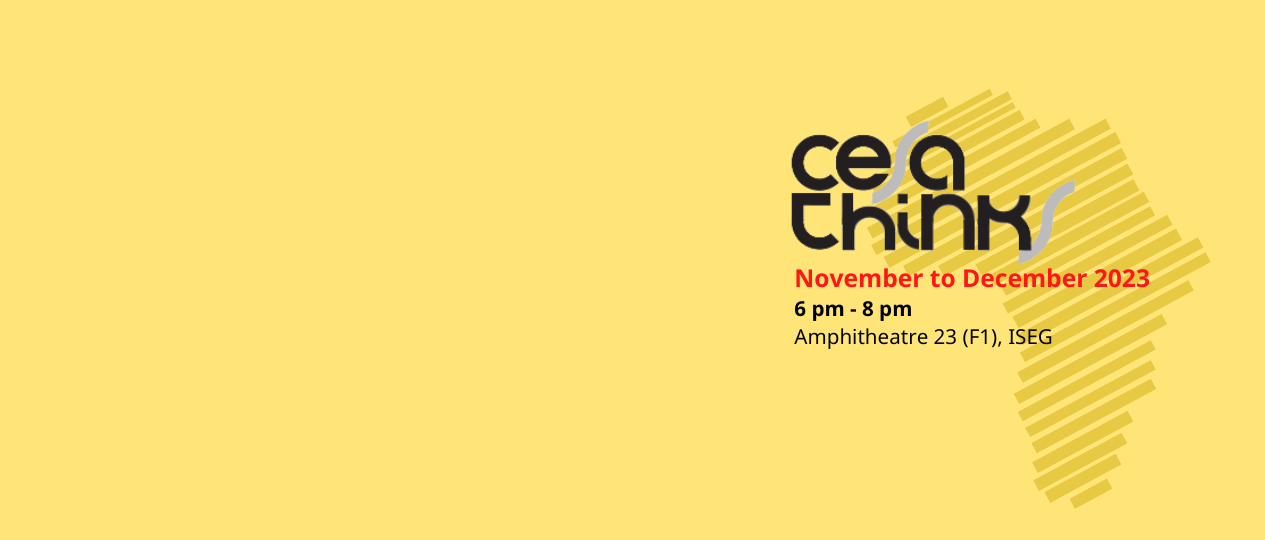
CEsA Thinks 2023 – Research Seminars | November 9 – December 7, 2023, 6pm-8pm | ISEG – Amphitheatre 23 (F1)
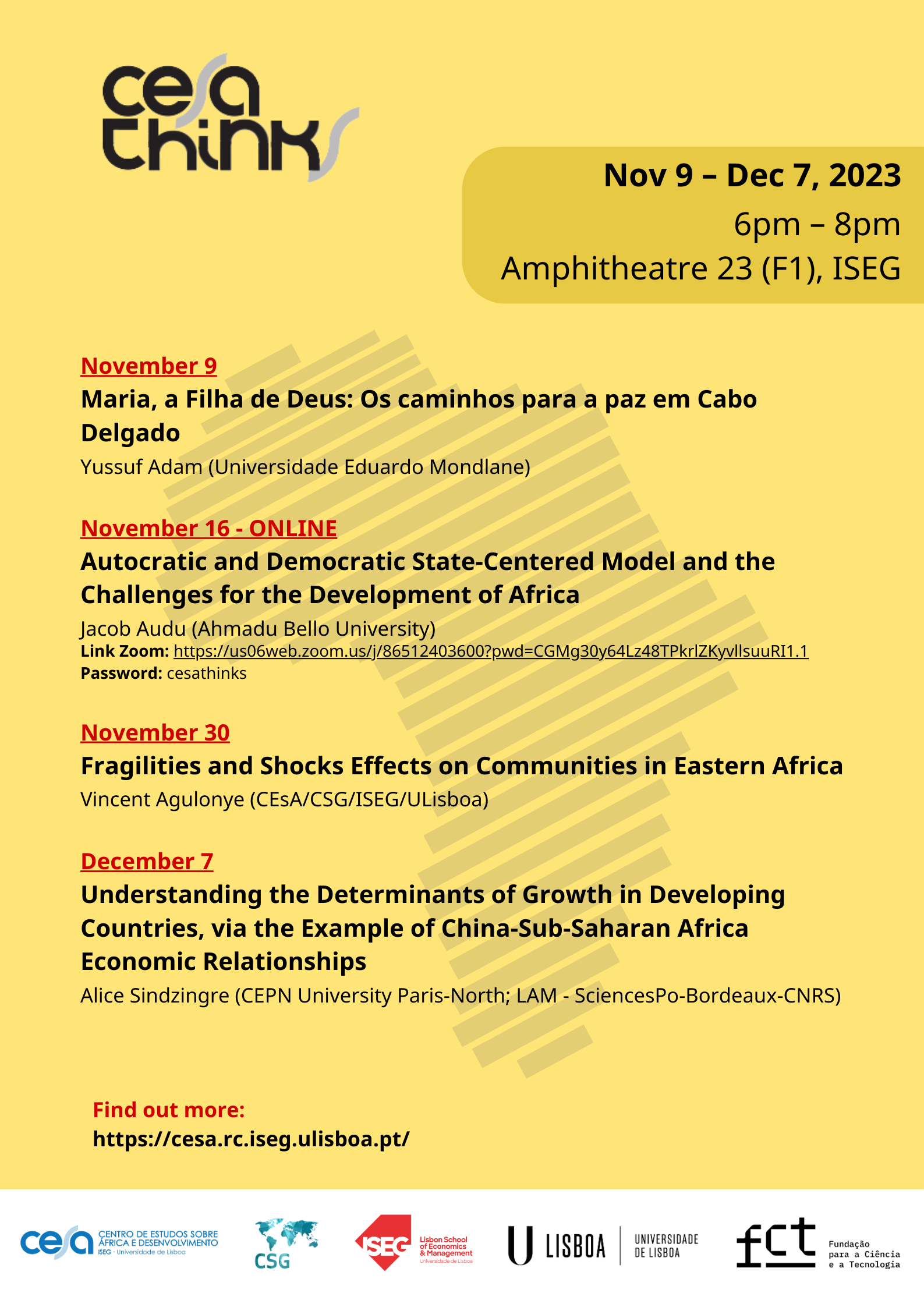
The coordinators Vincent Agulonye and Daniel Adayi, the Centre for African and Development Studies (CEsA/CSG/ISEG/ULisboa) and the ISEG – Lisbon School of Economics and Management, of the University of Lisbon (ULisboa), are pleased to invite you to the CEsA Thinks 2023 – Research Seminars. Presentations aim to promote peer discussions on current research conducted by researchers in the field of Development, with the aim of generating contributions and criticism of the works presented.
The Research Seminars Cycle will take place from November 9 to December 7, 2023, always on Thursdays*, from 6 pm to 8 pm (Lisbon time, UTC+0). The seminars will be in person** at Amphitheatre 23, Francesinhas 1 – ISEG (Rua do Quelhas 6, 1200-781 Lisbon, Portugal). Check out the full programme in the poster above.
*The only exception is on November 23, when there will be no session.
**The only exception is the session on November 16, which will be online. Zoom link: https://us06web.zoom.us/j/86512403600?pwd=CGMg30y64Lz48TPkrlZKyvllsuuRI1.1#success
CEsA Thinks 2023
Date: from November 9 to December 7, 2023, from 6 pm to 8 pm (Lisbon time, UTC+0). Always on Thursdays, with the exception of November 23rd, when there will be no session.
Venue: Amphitheatre 23, Francesinhas 1 – ISEG (Rua do Quelhas 6, 1200-781 Lisbon, Portugal)
Seminars will be in person, with the exception of November 16, when there will be no session (Zoom link: https://us06web.zoom.us/j/86512403600?pwd=CGMg30y64Lz48TPkrlZKyvllsuuRI1.1#success).
Get to know more about the sessions and its presenters
November 9 – “Maria, a Filha de Deus: Os caminhos para a paz em Cabo Delgado”
Presenter: Yussuf Adam (Eduardo Mondlane University, Maputo, Mozambique)
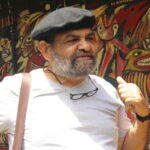
Yussuf Adam is Chief of the Department of History and Associate Professor at the Faculty of Letters and Social Sciences – Department of History at the University of Eduardo Mondlane (Maputo, Mozambique). Adam teaches the Social History of Health and Environment, and Urbanization and Rural Development in Africa. He holds a BA and a Master’s degree in History, and a PhD in Social Sciences from Roskilde University (Denmark).
November 16 – “Autocratic and Democratic State-Centered Model and the Challenges for the Development of Africa”
Presenter: Jacob Audu (Ahmadu Bello University, Zaria, Nigéria)
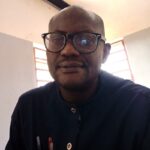
Jacob Audu is Associate Professor at the Department of Political Sciences and International Studies – Faculty of Social Sciences at the Ahmadu Bello University (Zaria, Nigeria). Audu holds a PhD in Philosophy and is a researcher and consultant in security, governance and democracy.
November 30 – “Fragilities and Shocks Effects on Communities in Eastern Africa”
Presenter: Vincent Agulonye (CSG/ISEG/ULisboa)
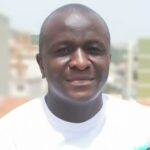
Vincent Agulonye is a CEsA researcher (CSG/ISEG/ULisboa). He holds a PhD in Development Studies from ISEG, University of Lisbon. At the moment, he is involved in studying development trends in Nigeria’s private sector (especially in the manufacturing industry) in Anambra.
December 7 – “Understanding the Determinants of Growth in Developing Countries: The example of China-Sub-Saharan Africa economic relationships”
Presenter: Alice Sindzingre/CEsA/CSG/ISEG/ULisboa
Abstract: The economic relationship between Sub-Saharan Africa and China intensified from the 2000s onwards. A key debate is as to whether these relationships have contributed to the economic growth of African economies – a debate that also has political economy implications in view of the criticisms of China’s presence in Africa. The determinants of growth highlighted by economic theory usually refer to physical capital (investment), human capital, innovation (including industrialisation), economic policies (e.g., trade openness), and institutions. Interestingly, the empirical impacts of China-Africa economic relationships may not fully illustrate the theoretical findings of the growth literature. It is argued that China’s economic relationships – trade, investment – have been drivers of growth in Sub-Saharan Africa, but that China’s impact on African growth has been limited by the specific modalities of these relationships: e.g., the economic weight of China makes it a player with which African countries cannot compete, notably for their own industrialisation that is threatened by Chinese industrial products; a substantial part of these relationships relies on primary commodities with low value added and hence wealth creation; and the contribution of China to the consolidation of African institutions remains limited, though economic theory views institutions as core determinants of growth. A subsequent argument is that China may not differ from Africa’s previous economic partners, e.g., Western countries, which have also exhibited mixed contributions to Africa’s growth.

Alice Sindzingre is a Research Associate at the CEPN (Paris-North Economics Centre, University Paris-North, France), at the LAM Research Centre (‘Africas in the World’, National Centre for Scientific Research/CNRS-SciencesPo-Bordeaux, France) and at the Centre for African and Development Studies (CEsA, ISEG, University of Lisbon, Portugal). She has been a member of the Core Team of the World Bank World Development Report 2000-1 on poverty. She has conducted research on development economics and political economy with a focus on Sub-Saharan Africa and has published articles in academic journals and books on a large range of topics, including international trade, foreign aid, China-Africa relationships, the theory of institutions, and the epistemology of economics.
Read more:
CEsA Presents: CEsA Thinks 2022/2023 – Seminars | October 13th, 2022 to February 8th, 2023\
Watch all sessions of CEsA Thinks Seminars
Author: CEsA Communication (comunicacao@cesa.iseg.ulisboa.pt)
Image: CEsA/Reproduction
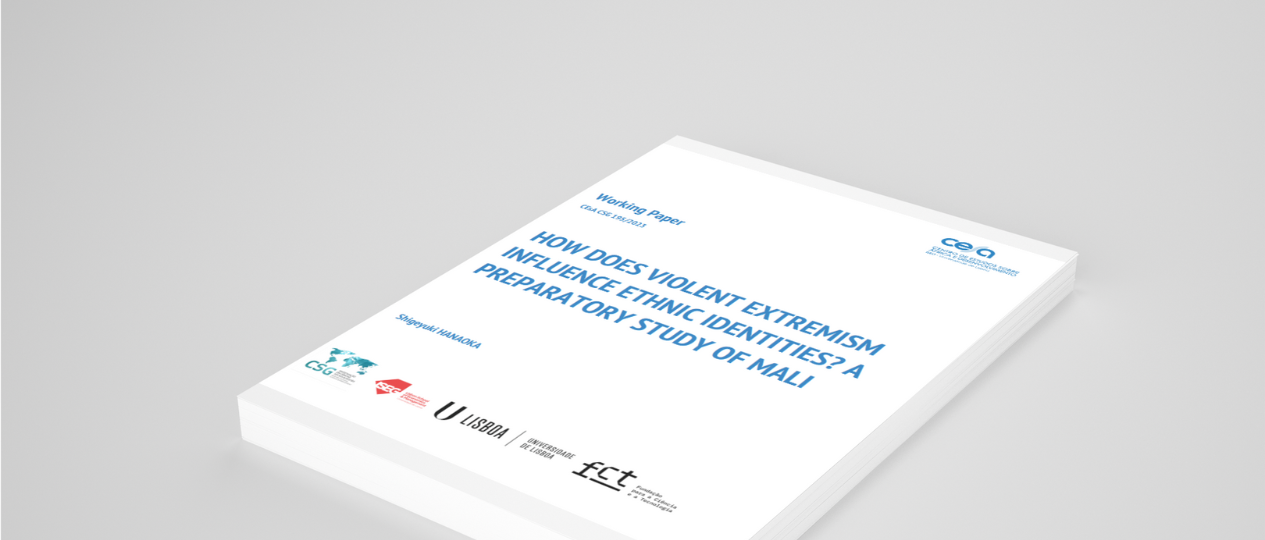
Working Paper CEsA 195/2023 studies how violent extremism affects the ethnic identity of people in Mali
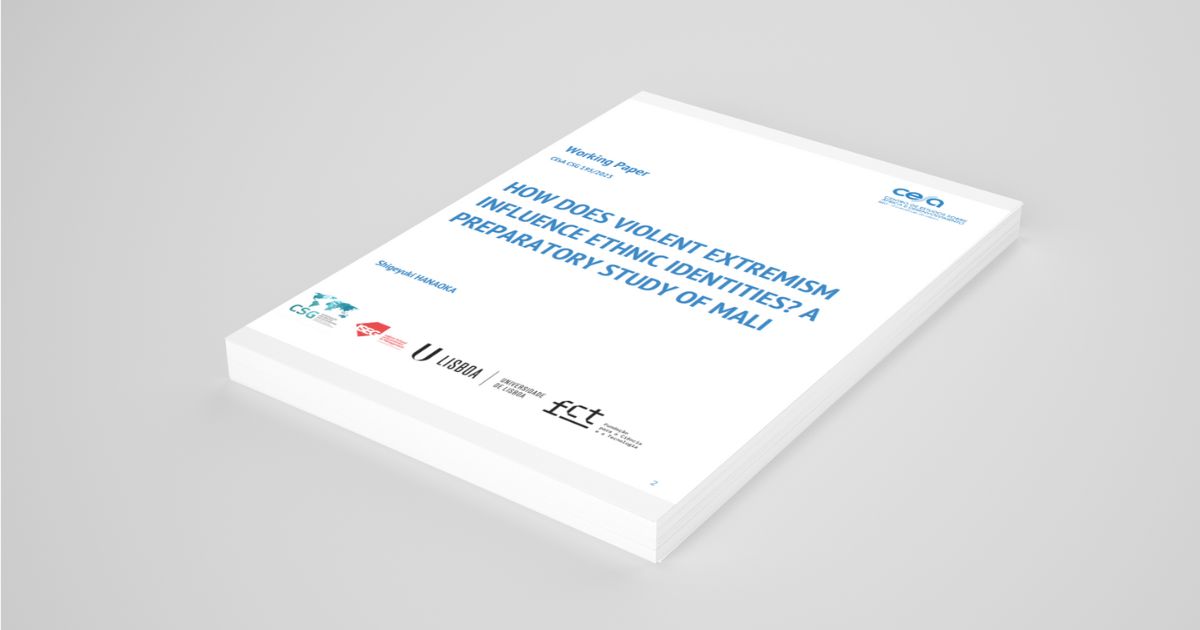
CEsA published its eighth Working Paper in 2023: “How Does Violent Extremism Influence Ethnic Identities? A Preparatory Study Of Mali”, in English, authored by Shigeyuki Hanaoka, CEsA Research Fellow.
Click here to access the Working Paper no. 195/2023: https://www.repository.utl.pt/handle/10400.5/29112
Abstract:
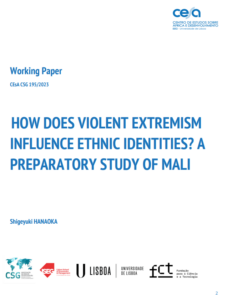 How does violent extremism (VE) impact individuals’ ethnic identities? While there is a broad body of research on VE, which has seen significant growth in Africa in recent years, including assessments of its origins, the coalescence of various movements, and military operations against VE, research on its impact on ethnic identity and its associated political behaviours remains limited. This work serves as a preparatory study to examine how people’s perceptions, and political behaviours related to ethnic identity have evolved during the period of VE’s substantial expansion in Mali in recent years.
How does violent extremism (VE) impact individuals’ ethnic identities? While there is a broad body of research on VE, which has seen significant growth in Africa in recent years, including assessments of its origins, the coalescence of various movements, and military operations against VE, research on its impact on ethnic identity and its associated political behaviours remains limited. This work serves as a preparatory study to examine how people’s perceptions, and political behaviours related to ethnic identity have evolved during the period of VE’s substantial expansion in Mali in recent years.
Get to know the previous editions, published in 2023:
Working Paper 189/2023: Fragilities and shocks effects on households and communities in West Africa
Author: CEsA Communications (comunicacao@cesa.iseg.ulisboa.pt)
Images: CEsA/Reproduction
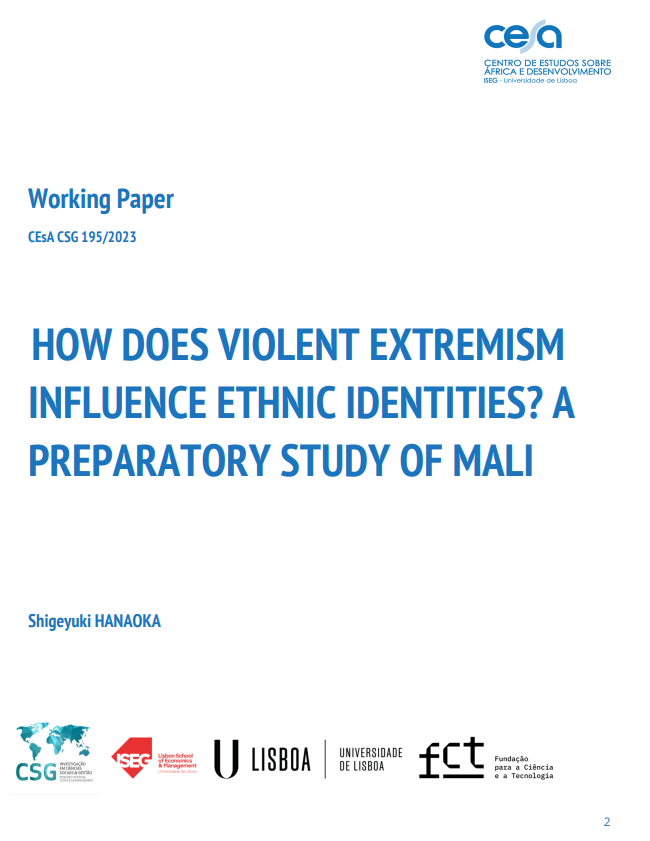
Working Paper 195/2023: How Does Violent Extremism Influence Ethnic Identities? A Preparatory Study Of Mali
Abstract:
How does violent extremism (VE) impact individuals’ ethnic identities? While there is a broad body of research on VE, which has seen significant growth in Africa in recent years, including assessments of its origins, the coalescence of various movements, and military operations against VE, research on its impact on ethnic identity and its associated political behaviours remains limited. This work serves as a preparatory study to examine how people’s perceptions, and political behaviours related to ethnic identity have evolved during the period of VE’s substantial expansion in Mali in recent years.
Quotation:
Hanaoka, Shigeyuki (2023). “How Does Violent Extremism Influence Ethnic Identities? A Preparatory Study Of Mali”. CEsA/CGS – Documentos de trabalho nº 195/2023
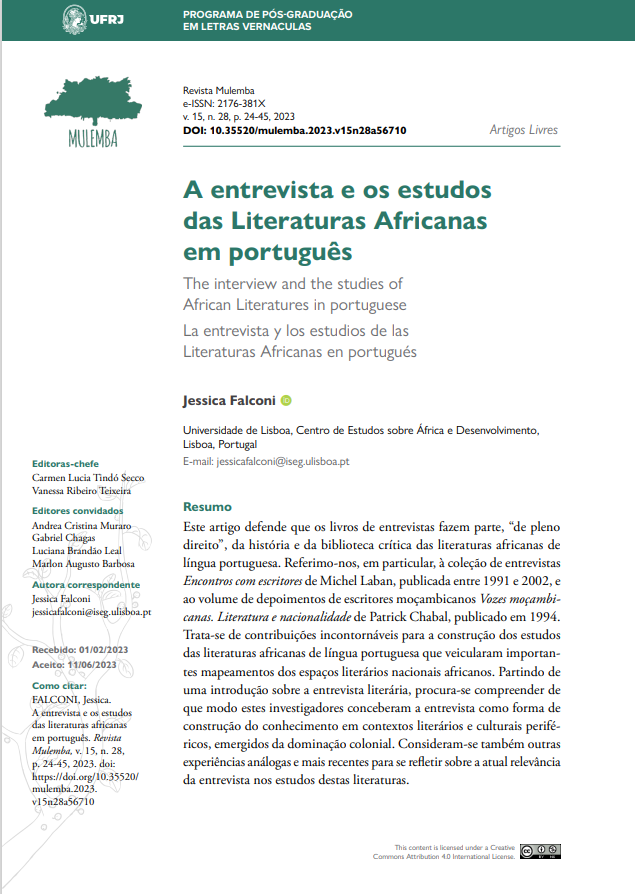
A Entrevista e os Estudos das Literaturas Africanas em Português
Abstract:
This article argues that interview books are a “full right” part of the history and critical library of Portuguese-language African literature. We refer, in particular, to the collection of interviews “Encontros com Escritores” by Michel Laban, published between 1991 and 2002, and the volume of testimonies by Mozambican writers “Vozes Mozambicanas. Literature and nationality by Patrick Chabal”, published in 1994. These are unavoidable contributions to the construction of studies of Portuguese-language African literatures that conveyed important mappings of African national literary spaces. Starting from an introduction to the literary interview, we seek to understand how these researchers conceived the interview as a way of building knowledge in peripheral literary and cultural contexts, emerging from colonial domination. Other similar and more recent experiences are also considered to reflect on the current relevance of interviews in studies of these literatures.
Quotation:
FALCONI, J. A entrevista e os estudos das literaturas africanas em português. Revista Mulemba, v. 15, n. 28, p. 24-45, 2023. doi: https://doi.org/10.35520/mulemba.2023.v15n28a56710





